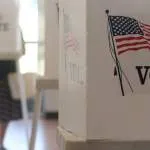(The Defender) A federal appeals court last week overturned the dismissal of a lawsuit against the U.S. Food and Drug Administration (FDA), ruling that the agency exceeded its authority under federal law when it advised the public against using ivermectin.
Three doctors — Robert Apter, Mary Talley Bowden and Paul E. Marik, co-founder of the Front Line Critical Care Alliance (FLCCC) — in June 2022 sued the FDA, the U.S. Department of Health and Human Services (HHS), FDA Commissioner Robert Califf and HHS Secretary Xavier Beccera in the U.S. District Court for the Southern District of Texas.
The doctors alleged the FDA’s guidance on ivermectin interfered with the doctor-patient relationship and their ability to prescribe an approved medication.
They also said their careers and professional reputations were harmed, as they faced sanctions from their employers, including suspensions and loss of privileges.
“Attempts by the FDA to influence or intervene in the doctor-patient relationship amount to interference with the practice of medicine, the regulation of which is — and always has been — reserved to states,” the complaint stated.
The lawsuit also noted that the FDA approved ivermectin in 1996 for the treatment of a variety of diseases.
On Dec. 6, 2022, U.S. District Judge Jeffrey Brown dismissed the lawsuit. Brown ruled the FDA has “sovereign immunity” granting it protection against most civil lawsuits, and that the plaintiffs had not successfully claimed they were directly harmed by any FDA action.
In its Sept. 1 decision, the 5th Circuit U.S. Court of Appeals disagreed with this aspect of the lower court’s reasoning, finding that “the Doctors can use the APA [Administrative Procedure Act] to bypass sovereign immunity and assert their ultra vires claims against the Agencies and the Officials.”
Ultra vires claims describe “actions taken by government bodies or corporations that exceed the scope of power given to them by laws or corporate charters.”
Ray Flores, senior counsel for Children’s Health Defense (CHD), told The Defender, “One of the three issues raised in the appeal was sufficient to overturn the District Court’s dismissal of the case.”
U.S. Circuit Judge Don Willett, writing for the three-judge panel, said, “FDA can inform, but it has identified no authority allowing it to recommend consumers ‘stop’ taking medicine.”
Referring to a series of social media posts and public pronouncements by the FDA against the use of ivermectin for the treatment of COVID-19, Willett said, “FDA is not a physician. It has authority to inform, announce, and apprise — but not to endorse, denounce, or advise.”
“The Doctors have plausibly alleged that FDA’s [social media] Posts fell on the wrong side of the line between telling about and telling to,” he added. “FDA argues that the Twitter posts are ‘informational statements’ that cannot qualify as rules because they ‘do not “direct” consumers, or anyone else, to do or refrain from doing anything.’ We are not convinced.”
Kim Mack Rosenberg, acting general counsel for CHD, told The Defender, “This is an important decision and opens the door for doctors to vindicate important rights.”
She added:
“Damages alone cannot undo the harms the FDA caused with its notices. But legal recognition of the FDA’s role is critical, and these plaintiffs now have a chance to present their standing arguments to the District Court and hopefully further litigate these critical issues which should not be allowed to go unaddressed.”
Bowden lauded the ruling. “The FDA misled the public into thinking it has more authority than it does,” she said. “This decision confirms that the FDA is not your doctor and has no authority to tell doctors how to practice medicine.”
Other legal experts who spoke with The Defender also welcomed the ruling.
Attorney Todd Richardson, who represents Dr. Richard Eggleston, a retired Washington doctor facing the loss of his license over his public statements in favor of ivermectin, said that while “the administrative state is powerful and dangerous, this ruling trims it back and gives those fighting for the freedom of the people a little breath.”
However, attorney Rick Jaffe, who also represents Eggleston in the same case, warned that since state medical boards and private employers — not the FDA — ultimately are the entities that can launch disciplinary proceedings against doctors, the ruling is “a little more complicated and nuanced” than it may appear at first glance.
“The long and short of it is that state medical boards, not the FDA, regulate the practice of medicine,” Jaffe said. “They decide if the use of ivermectin and other off-label drug use aligns with the standard of care.”
However, “a win is a win, and it was a great victory in terms of helping roll back the administrative state in general and the overreach by the FDA,” he added.
The lawsuit has been remanded to the district court, which will now hear the case.
You are not a horse. You are not a cow. Seriously, y’all. Stop it. https://t.co/TWb75xYEY4
— U.S. FDA (@US_FDA) August 21, 2021
Willett addressed the FDA’s messaging in his ruling, writing:
“Left unmentioned in most of that messaging: Ivermectin also comes in a human version. And while the human version of ivermectin is not FDA-approved to treat the coronavirus, some people were using it off-label for that purpose.”
During a November 2022 hearing, Isaac Belfer, an FDA lawyer, said:
“The cited statements were not directives. They were not mandatory. They were recommendations. They said what parties should do. … They did not say you may not do it, you must not do it. They did not say it’s prohibited or it’s unlawful. They also did not say that doctors may not prescribe ivermectin.”
However, Belfer’s statements appear to contradict the FDA’s social media posts, which linked to an FDA webpage advising the public why they should not use ivermectin to treat COVID-19. That webpage remains online as of this writing.
Hold your horses, y’all. Ivermectin may be trending, but it still isn’t authorized or approved to treat COVID-19. https://t.co/TWb75xYEY4
— U.S. FDA (@US_FDA) April 26, 2022






